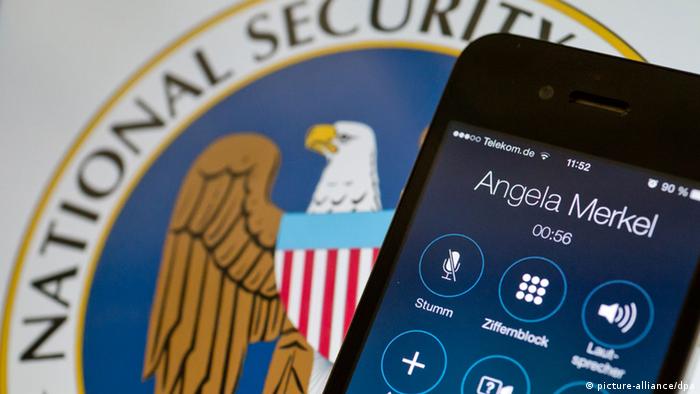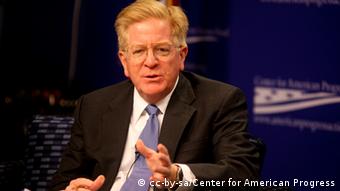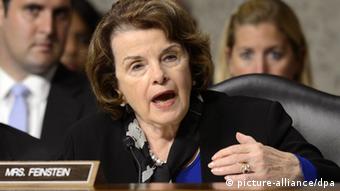US to make U-turn in NSA spying scandal?
The tide seems to be turning. Will US President Barack Obama change the country's controversial intelligence gathering policy? And what exactly would be done differently?
The news that German Chancellor Angela Merkel's phone was being hacked was a wake-up call for many in the US, according to Viviane Reding, EU justice commissioner. "It's our job as politicians to ensure that this wake-up call is followed by political action," she told DW during a trip to Washington.
That is exactly what appears to be happening in Washington: there's suprisingly harsh criticism coming from influential US Senator Dianne Feinstein who has so far been supporting Obama and the National Security Agency (NSA). It looks as if the detailed hearings of the Senate Intelligence Committee, which she chairs, and the repeated threats by Germany and Brazil have had their effect.
Obama poised to stop spying
Under increasing pressure at home and abroad, the White House has been driven to the conclusion that changes must be made, according to the New York Times and other media outlets. But, in a television interview, Obama was not prepared to say exactly what would be done differently
"First of all, you don't target your allies," Rudy deLeon from the Center for American Progressbased in Washington told DW. In this day and age of digital technology, the controls have to be improved and privacy better protected.
Allies involved
"There need to be some constraints on what [the NSA] can do, and they need to work out the details particularly with our allies," says security expert and former Reagan administration adviser Larry Korb. Like the CIA, the NSA should also be required to inform the President and the Senate in advance of any operations. Just because the NSA can listen in to Merkel's mobile phone, does not mean they should: "The technology has outpaced the policy and we do need to have some rules of the road about how far you can go and what we and our allies should be telling each other."
Pro-active parliament
Reding said that it was now up to the members of Congress to take action. Many had told her that "the debates in the constituencies last weekend about the encroachments on allies were very intense, nd that people could not understand how such a thing could happen."
Jim Sensenbrenner, a republican member in the House of Representatives, along with other parliamentarians, wants to bring a bill before the house. For Rudy deLeon, Sensenbrenner's commitment is a "very significant" signal. Sensenbrenner helped to draw up the Patriot Act after 9/11. While the administration justifies its actions on the basis of the act, Sensebrenner says that's not what the act was intended to allow.
Germany and Europe as a model?
Korb suggests that Europe and Germany should serve as a model for congress's legislation. Europeans have more experience with privacy protection due to their history.
According to deLeon, Congress should play a much greater role as "watchdog" and thus restore the balance between the constitutional bodies.
Reding's criticism
EU Commissioner Reding would surely agree, but she has her doubts about the functional capabilities of America's public institutions, and whether "the legislative machinery in this country is still capable of passing fundamental laws." But she rejected calls from the European Parliament to suspend talks on Transatlantic Trade and Investment Partnership, even though, as she admitted, the wiretapping scandal has put the talks at risk.
Reding welcomed Feinstein's new support for a thorough investigation into the secret service programs. Korb and other experts in Washington see it as a warning to the NSA.
NSA transparency offensive?
Feinstein took 90 minutes out of her schedule to discuss the spying affair with Elmar Brok, chairman of the European Parliament's Foreign Affairs Committee. After the meeting, in which NSA Chief Keith Alexander also took part, Brok spoke optimistically about developments and even referred to a "transparency offensive" by the NSA. He couldn't know that US Director of National Intelligence James Clapper was telling a hearing in the House of Representatives that the monitoring of foreign heads of state was part of the usual business of intelligence gathering.
Three European Parliament delegations are currently in Washington, and they are enjoying an unusual amount of political and media attention. It's rare for representatives of the European Parliament to be seen on CNN or Fox News? dw de





No comments:
Post a Comment